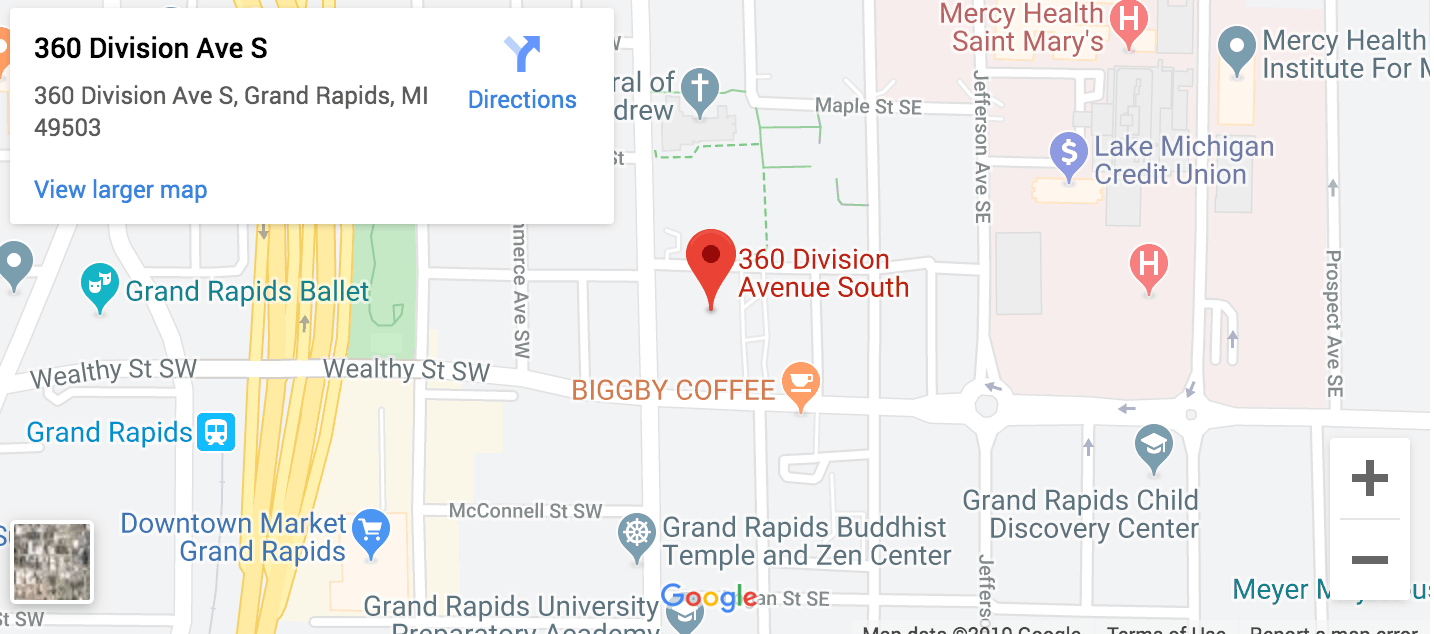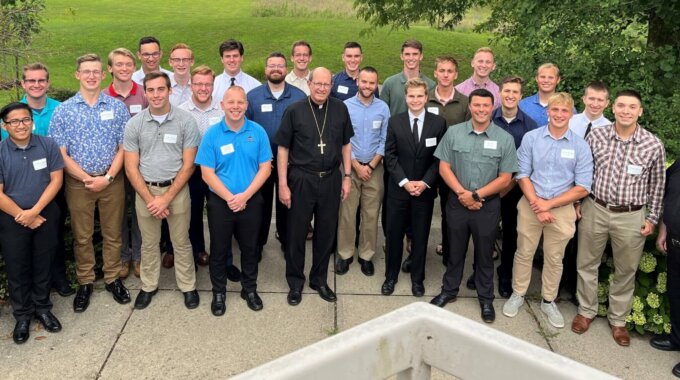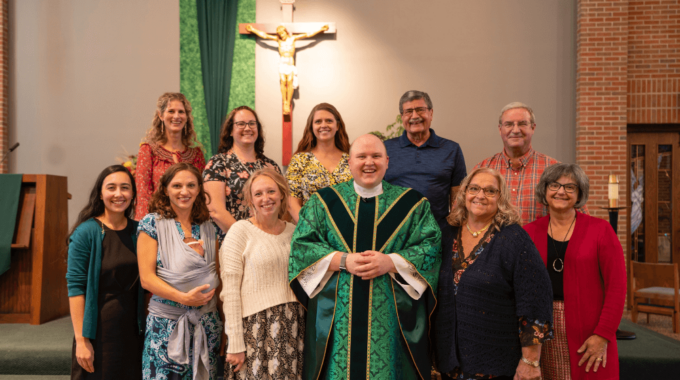November 2024 by Fr. Rob Mulderink Since this is my first time writing this column,…
The art of discernment
God wants to fulfill our heart’s desires
Recently, I was with my good friend Father Colin Mulhall. I said to him, “Hey man, you know what sounds good right now? An almond croissant.” We went to purchase our healthy snack and the store had exactly two left (divine providence for the win)! I immediately began enjoying my croissant and said, “You know man, it’s almost like God placed that desire for a croissant on my heart just so that he could fulfill it.” Father Colin laughed because he often says to people, “God wants to fulfill your desires. He never gives you a desire that he will leave unfulfilled.”
Now you may be thinking, “Come on Father, God wasn’t telling you to eat a croissant – your stomach was!” And, you would likely be right. But this story reminds me that God fulfills the desires of our hearts to manifest that he is actively present in our lives, that he is leading us, and that his plan for our lives is the best plan. God may even fulfill that desire for a treat from time to time.
The desires of our hearts are important in our spiritual lives because they are the place where discernment happens. By discernment, I simply mean learning to listen. For us to discern well, we need to learn to decipher the difference between our voice and God’s voice. Discernment becomes difficult when we are unaware of not only God’s presence in our lives, but also of our own thoughts, feelings and desires.
The key to discernment is becoming aware. What are my thoughts, feelings and desires right now? How have I noticed God’s presence in my life the past day, week or month? Discernment is an art that takes time to master because it requires prayer and reflection to identify which voice belongs to me and which belongs to God. At times, we need a spiritual adviser to help us make these distinctions. Once we understand our interior life, where God is speaking to us and the desires of our heart, we can act. We can choose to be led by God rather than leading ourselves.
Here are two real-life examples.
Consider a young man who never expressed interest in the priesthood. In fact, he speaks often about how much he looks forward to life as a dad. He goes to college and, after two years, surprises everybody by going to the seminary. Eventually, he becomes a priest. One might wonder, “What happened to that desire to be a dad?” The young priest responds, “When I went to the seminary, I did not know if God was calling me to the priesthood, but I thought it was possible. While in the seminary, I realized that God wanted me to be a spiritual father to his people as a priest. I realized also that God wasn’t taking my desire for fatherhood away; instead, he was fulfilling it in a beautiful way in the priesthood.”
Consider another young man who always wanted to be a priest. He spoke about it often, and his classmates in high school were not shocked when he went to the seminary. Eventually, he leaves, and you notice on Facebook he is married. One might wonder, “What happened to that desire for priesthood? Did God fail to fulfill that desire?” The young married father responds, “I wanted to be a priest my whole life. I was drawn to the example of holy priests and their love of the Lord. But when I went to the seminary, I realized that my desire was for holiness and not the priesthood. I became aware that God was calling me to the vocation of marriage.”
Both young men are examples of good discernment: becoming aware of their desires and God’s voice, understanding and taking action. Discernment takes time. It rarely happens in a day or a week; discerning a vocation often takes months and sometimes years. The challenge for us is to create a culture where people can freely discern as they become more aware of their desires and God’s call in their lives.




